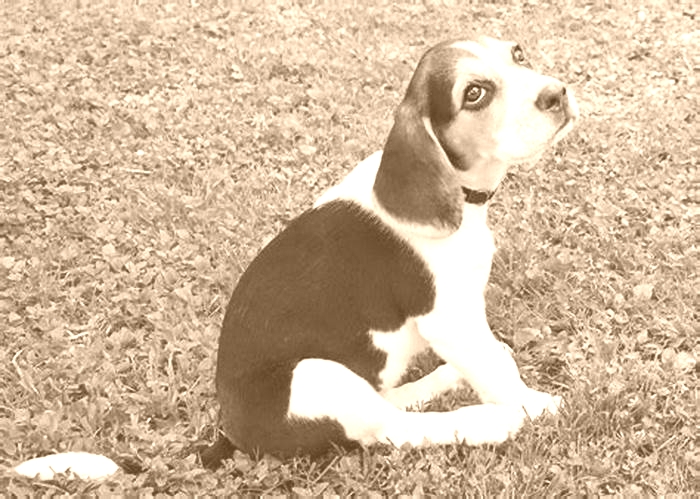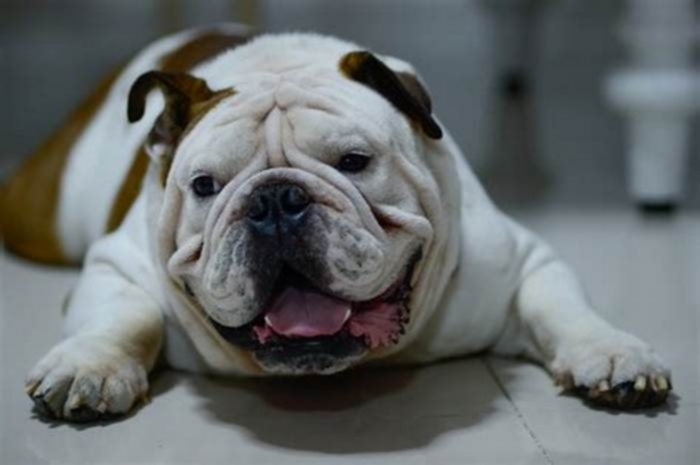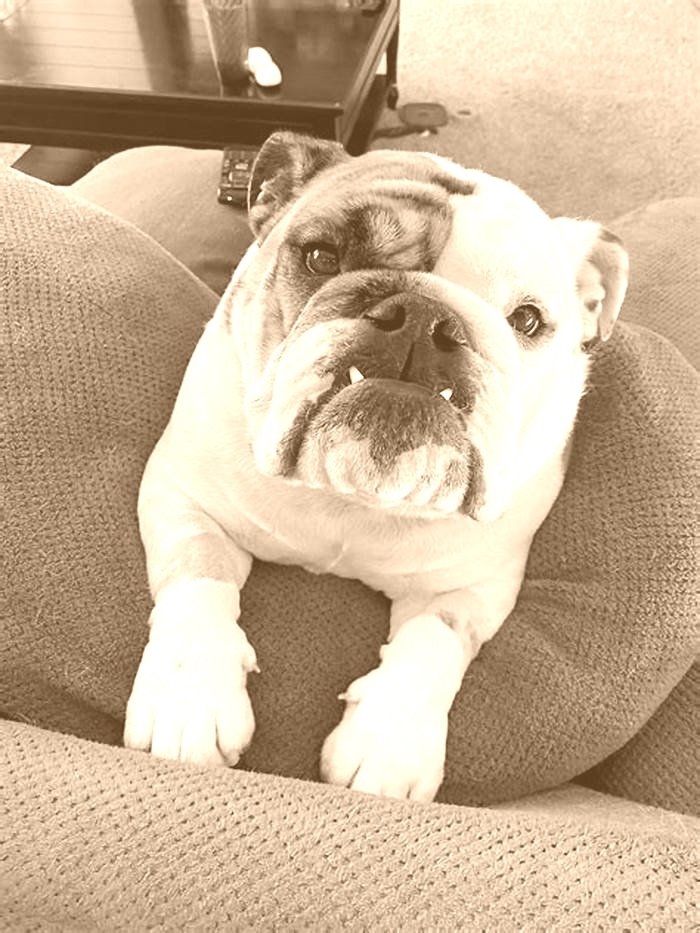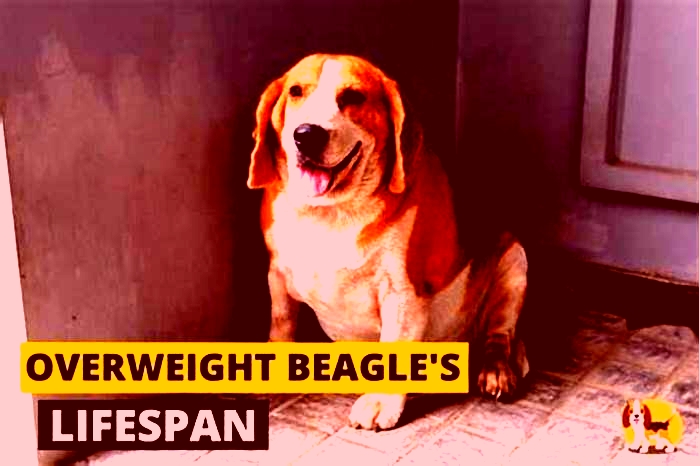Beagle Weight Loss How to Advocate for Your Pets Health Needs

7 Ways to Help your Beagle Lose Weight
My neighbors beagle, Cookie has gained a lot of unhealthy weight lately. So we decided to take this challenge of transforming Cookie by helping her to lose excess weight.
After doing a lot of research and talking with my vet, I found seven effective ways to help a beagle lose weight.
These ways worked amazingly for Cookie, and they will help any beagle to lose unhealthy weight. But just to be safe, consult your veterinarian before implementing them.
1. Start Measuring Calories
Start measuring your beagles calory intake and cut it down. If you are feeding your pooch according to the feeding guide mentioned on the dog food package, then stop. These guides are made for active dogs with an average healthy weight.
By feeding your overweight beagle according to these guides, you are feeding him 20% to 30% more than he needs.
Ask your vet to calculate the necessary amount of calories that your beagle needs every day and start feeding accordingly.
You can use this formula to get a general idea of many calories your inactive dog requires. But make sure to check it with the vet first.
First, divide the weight of your beagle by 2.2, then multiply it with 30, and then add 70 to it.
[(Weight of your Beagle / 2.2) x 30] + 70
Most dog food packages have calories per bowl or calories per 100 grams. Start measuring the calories and feed your beagle accordingly.
2. Use vegetables as treats

Manufactured treats are not the best option for an overweight beagle. Try replacing these treats with vegetables that your pooch loves. Some popular and healthy vegetables that many dogs enjoy are baby carrots, apples, bananas, green beans, and celery.
Try different types of vegetables until you find a few that work best on your canine. Here is a list of 32 vegetables safe to feed your beagle.
Make sure not to feed to much vegetables that contain natural sugar like bananas and apples.
But if your beagle is like my niece who hates veggies, then here are two low-calorie and healthy treats:
3. Daily Exercise

While cutting down calories will stop your beagle from gaining weight, exercising will help burn calories and lose weight.
Beagles are a breed of hunting dogs. They are suppose to run, chase, and be active. If you fail to provide enough exercise for your beagle, they start gaining weight and become lethargic.
To help your beagle lose weight without causing any health risk, take things slow but steady. Start with taking your pooch out for a walk just around the block. And gradually increase the distance.
Make a schedule and be consistent with it. Do not miss even a single day.
Here are 12 fun ways to exercise your beagle.
4. Feed many small meals

Once you know how much you are supposed to feed your beagle in a day, divide the ratio into 3 to 6 small portions and feed them throughout the day. According to Dr. Carol Osborn, it requires energy to digest the food that burns calories. Feeding small meals many times a day will burn more calories.
She says that feeding a small portion of meals every 4 to 6 hours makes your dog feel full throughout the day and reduces appetite spikes.
5. Cut down Carbs
Most beagles do not need a diet that is high in carbohydrates, and still, most dog foods have high carbs. Dog food for losing weight should be low in carbs and high in proteins.
6. High protein Diet
Many manufactured dog foods contain fillers, by-products, grain, and unhealthy preservatives. They are high in fats and carbohydrates and have low protein.
Switching to high-quality, grain-free dog foods with fresh meat as their primary ingredients can help your beagle achieve goals of being healthy.
I recommend these three high-protein dog foods for losing weight:
Make sure to consult your veterinarian before switching food.
You can even start feeding your beagle home-cooked food. Its the best way to ensure that your pooch gets all the essential nutrients. Ask your veterinarian or a pet nutritionist to create a home-cooked died for your beagle.
7. Play with them
Beagles love to interact with their human buddies. One way to make them happy and burn some calories is to play some games with them.
You dont need to go out; you can play some indoor games like hide and seek and fetch.
Bonus: Teach and revise tricks
Teach them some tricks and commands; this will be fun for you as well as your pooch. And the best part about it is that it will be a mini exercise for them.
Teaching new tricks also provides mental stimulation, which makes them feel good and excited.
Fix a time and add this to your schedule to teach and revise trick to your beagle. Just make sure you dont over-treat them.
Did you know obisity can decrease the lifespan of beagles.
Conclusion
DO NOT set an unrealistic goal of making your dog fit in just a month, its not safe for them. Ideally, losing 1 to 2 pounds a month is safe and less stressful.
Keep this weight-loss thing as much fun as possible for your beagle. And dont be too strict with everything. Its more about being consistent.
The above ways have worked for us as well as many other dogs. But to be safe, please ask your veterinarian before doing any lifestyle changes in your beagles routine.
Beagle Growth & Weight Chart: Everything You Need To Know
Heres everything you need to know about Beagle size and growth:
Beagle Growth and Size
Unlike many dog breeds, Beagles do not vary much in size based on gender. However, the American Kennel Club currently recognizes two varieties of Beagles in size: the 13 inches & under size and the 13 to 15 inches tall size.
A Beagles adult height largely determines what their healthy weight should be, which can vary by about 10 pounds depending on their size classification. If you purchased your Beagle puppy through a breeder or pet store, reach out to them about the Beagle size group your puppy belongs to. If youre unsure which group your Beagle falls into, you can measure their height yourself.
Please remember that the following numbers are estimates and that all puppies grow at different rates. Dont worry if your puppy is slightly ahead or behind the following numbers. Consult with your veterinarian if youre concerned about your Beagles weight or size.
Pro Tip: Did you know that you could be reimbursed for up to 90% of your dogs veterinary bills? Compare Beagle health insurance options now.
Beagle Weight and Height Chart
| AGE | Smaller Beagle (13" & Under) | Larger Beagle (13-15") |
|---|---|---|
| 1 mo. | 2-3 lb. | 3-4 lb. |
| 2 mo. | 3-5 lb. | 4-7 lb. |
| 3 mo. | 7-10 lb. | 8-11 lb. |
| 4 mo. | 8-11 lb. | 9-12 lb. |
| 5 mo. | 9-12 lb. | 10-13 lb. |
| 6 mo. | 12-17 lb. | 14-18 lb. |
| 7 mo. | 14-16 lb. | 16-20 lb. |
| 8 mo. | 16-20 lb. | 18-22 lb. |
| 9 mo. | 16-20 lb. | 20-26 lb. |
| 10 mo. | 16-20 lb. | 20-28 lb. |
| 11 mo. | 16-20 lb. | 20-30 lb. |
| 12 mo. | 16-20 lb. | 20-30 lb. |
How big should a Beagle be at six months?
A six-month-old Beagle will be approaching their adult height and could stand anywhere between 10 and 13 inches tall, weighing around 12 to 17 pounds.
How much bigger will my Beagle get?
There are a few ways to estimate how much bigger your Beagle will get.
Most Beagles reach their adult height by eight months old and their adult weight by a year and a half of age. If your Beagle is less than a year and a half old, they are likely still growing. Reference our growth chart above for estimates on your Beagles final size.
You can also take a look at your Beagles paws. Do they look large next to their body and legs? This is a classic puppy feature showing that your Beagle pup is still growing into them!
If you purchased your Beagle through a breeder, you could contact them for a more exact estimate of your Beagle puppys final size and height based on previous litters by their parents. What size group they fall into based on their expected adult height can provide a lot of clarity on how much they will eventually weigh.
Pro Tip: Download a new puppy checklist for a complete list of safety procedures, training tools, parenting tips, and more!
At what age is a Beagle fully grown?
Beagles reach their full height around eight months old and their adult weight around 18 months old. Thats not to say they wont get any heavier, however. Beagles are particularly prone to obesity.
These chowhounds tend to over-eat and should have their food carefully portioned out, as theyll continue to eat well beyond the point of being full. As a Beagle owner, its vital for you to closely monitor their weight and diet to help them avoid the dangers of obesity.
(Image Source: Unsplash)
What is the size of a full-grown Beagle?
The American Kennel Clubs Official Standard for the Beagle breed states that an adult Beagle standing at 13 inches or less should weigh less than 20 pounds, while an adult Beagle standing at 13 to 15 inches tall should weigh between 20 and 30 pounds. As adults, Beagles will look like miniature foxhounds with a solid, balanced body that allows them to last in a long chase.
(Image Source: Unsplash)
How do I make sure my Beagle is healthy?
According to the Veterinary Centers of America, Beagles are more prone to specific genetic health problems, such as cervical intervertebral disk disease. This disease occurs more frequently in dogs with long backs and short legs between three and six years old.
Watch out for symptoms like neck pain, a change in their gait, or lowered head, possibly with muscle spasms in their shoulders, neck, and head area. If you notice your Beagle experiencing these symptoms, immediately contact your veterinarian for the next steps in treating your pup.
Regular veterinary care is the best thing you can do for your dogs long-term health. A veterinary professional can regularly screen your Beagle for common health problems, like diabetes, and work with you to prevent and treat any health concerns that arise.
Veterinary care can become expensive, especially for emergency or unexpected treatments. Only 19.44% of pet parents surveyed said they would be able to pay for a $5,000 veterinary expense out-of-pocket, leaving many pet parents in a dangerous position should anything happened to their beloved dog.
Pet insurance is the answer to this dilemma. Pet insurance works by reimbursing you for up to 90% of out-of-pocket veterinary care so that you can provide your Beagle with the best care. Like humans, dogs are living longer lives and require top-notch health care to enjoy their happiest and healthiest lives.
Pet insurance provides you with a safety net so that you can give excellent veterinary care to your dog, no matter the cost. Set up a safety net today so that you can provide your pup with exceptional care throughout their entire lifetime. Pet insurance wellness plans also offer help with routine care, such as dog dental cleanings.
Final thoughts
Beagles are wonderful, warm dogs that take up a large part of our hearts despite their small size. Give yourself peace of mind and provide your Beagle with a safety net should the worst happen. Use Pawlicy Advisor today to compare pet insurance plans side by side from the top Beagle pet insurance providers today!
Pawlicy Advisors personalized recommendations can help you save up to 83% on insurance costs over your dogs lifespan.
Weight Management in Senior Beagles: A Healthy Lifestyle Guide
If your much older Beagle is anything like most senior dogs, chances are he's going to be highly prone to unwanted weight gain at this point of his life. And not helping your dog lose weight properly could mean a number of wellness issues coming his way sooner or later.
In this blog post, we're going to get you in on the important things to keep in mind when it comes to maintaining ideal body weight in senior dogs. We're also walking you through simple and practical tips on how to make your aging dog's weight loss plan a long-term success.
The Importance of Healthy Weight in Senior Dogs
Much older dogs become more vulnerable to weight gain because of the various physiological changes taking place in their bodies. A key factor in all of this is the sharp decline in your dog's metabolism, which helps convert extra calories into energy.
As a dog ages, his metabolism rate becomes more and more sluggish. Instead of being converted into energy, the regular calorie intake of your senior Beagle will just accumulate over time and transform into body fat. When too much fat piles up, an overweight dog is already at risk of canine obesity.
Unlike what a lot of pet parents mistakenly think, though, helping your senior dog lose weight is not something that is extremely complicated or impossible. And it's not just the stuff that your aging dog eats, too.
Make sure you follow along because we're going to discuss simple and realistic not to mention natural ways to achieve a steady weight loss plan for your older Beagle in just a bit.
Wellness Issues in Overweight Dogs in their Golden Years
Before we get to the finer details of this part of our discussion, we'd just like to emphasize that older dogs are not automatically at risk of health problems when they gain weight. These issues will get in the picture when the weight gain in a senior dog is consistent and no appropriate measures are placed when it comes to losing weight.
Now we've got that cleared up, let's check out the possible wellness problems that your older Beagle can go through if he excessively gains weight during his golden years. It is crucial to remember that these issues can have very significant negative effects on your dog's health and their consequences may even be fatal.
Difficulty in movement
Overweight dogs can be vulnerable to mobility problems since their bodies are constantly trying to adjust to the extra pounds. Your senior Beagle may have trouble moving his muscles, shifting from a sitting position to a standing one, or perhaps fully extending his limbs when walking or running.
If not dealt with the right way, an older dog may be at risk of chronic pain in certain parts of the body such as the spine and shoulder blades. Other dogs can also experience muscle loss and joint degeneration leading to arthritis, among other health problems.
Moreover, excessive weight gain in senior dogs may even aggravate certain genetic conditions like hip dysplasia and elbow dysplasia.
Heart disease and respiratory problems
An old dog that's over his healthy weight has a heightened risk of developing hypertension or high blood pressure. This triggers a more rapid heart rate and disrupts his normal breathing rhythm. Chronic hypertension can also lead to kidney disease and heart murmurs.
Most dogs that have hypertension are also potentially at risk of retinal detachment and degeneration, persistently dilating pupils, metabolic syndrome, canine cognitive dysfunction (CCD), aneurysm and congestive heart failure.
Your aging dog can also be susceptible to an unexpected heart attack if hypertension is left unchecked. Symptoms of a canine heart attack may be interpreted as usual coughing and weakness only, which makes this health problem rather scary to deal with.
A sharp decline in immune system health
A senior dog that is well over his good weight can eventually suffer from an impaired immune function or a sharply decreased immune response. Your aging Beagle becomes highly vulnerable to a variety of wellness problems in this situation.
And given the various physical and mental changes your aging dog is going through; his overall immune system health is going to be at risk before you know it.
Besides being at risk of skin infections and inflammations, your golden-aged pooch may also be susceptible to more serious diseases like organ failure, canine cognitive dysfunction (CCD), and even cancer in dogs. It's even possible that your dog's dietor dog's kibbleis contributing to some of his wellness issues leading to a shorter life span.
Just to reiterate, it is important to take note that helping your dog maintain the right weight is also a straightforward way of making him resilient against disease and illnesses.
Issues in maintaining ideal body temperature
If your senior dog needs to undergo weight loss, chances are he's having a tricky time regulating his body temperature when the weather is warm. The extra fat in his body may make it difficult for him to cool down compared to leaner dogs.
Losing weight is a key factor if you're looking to help your aging dog feel much better during these conditions. Doing away with too many calories in your dog's diet is one of the ways to achieve this. We're going to explain this more in detail shortly.
Although it is true that having extra fat on your golden-aged dog can act as added insulation during cold weather, the same will just be a drawback during warmer months like the summer. In very extreme cases, your dog could even be at risk of heat stroke or hyperthermia.
What is "Ideal Weight" in Senior Beagles?
While this may sound surprising, there is no hard and fast rule when it comes to the ideal weight of your senior dog.
Sure most people will tell you that Beagles should weigh between twenty (20) to thirty (30) pounds, but this isn't always the case. These are just proposed "ranges" that may or may not be suitable for your beyond adult dog.
In our combined experience as professional pet homeopaths, it's totally possible that a Beagle's weight may be in the recommended range, but the dog's ribs are still very prominent, which is a sign of being underweight.
There are specific factors to consider when determining if your canine best friend should lose weight or gain weight, which are as follows:
Overall size (some Beagles can be small, while others can be medium-sized)
The presence of any underlying health conditions
Your dog's daily routine and activity level
Your dog's diet (homemade dog food should also be counted here)
The most practical and straightforward way to determine the ideal weight of your old dog is to consult with a vet or a pet wellness expert.
They can also give you a heads up if your aging Beagle is suffering from issues like protein deficiency, kidney disease, or some other problem that is affecting his overall weight in general.
Signs Your Senior Dog Needs to Lose a Few Extra Pounds
While the presence of slightly visible rolls of fat and similar "chunky" attributes can be one indicator that you should help your aging dog lose weight, there are actually other signs to be mindful of like the ones below:
Breathing becomes labored
Excess weight in senior dogs has the effect of constricting the respiratory system. It makes breathing difficult, especially during low-impact activities when you need to keep a dog moving like when you're playing fetch or on daily walks.
This issue becomes more noticeable when the weather is warm or during the summer months. It can be attributed to the added difficulty that your beyond adult dog is experiencing in regulating his overall body temperature due to the extra fat deposits in his body.
Grooming difficulties
Another sign that your much older dog needs to lose weight is he's not grooming himself like he used to. If we're being honest, grooming can require a bit of dog calisthenics, particularly when it comes to hard-to-reach areas like the inner thighs, the belly as well as the toes and paw pads.
A quick reminder, though. The constant lack of self-grooming from your aging dog not only makes him prone to coat matting and tangling, but also the possibility of attracting parasites like fleas, mites, and ticks before you know it.
Significant exercise intolerance
Moreover, you need to help your golden-aged dog lose weight if he seems to easily get winded or tired when you engage him in your usual exercise and physical activities.
While senior dogs are not expected to have the same energy level and stamina compared to their younger counterparts, chances are your much older Beagle is going to feel bushed right away if he's way over his recommended weight.
Overweight dogs will also try to avoid play and similar pastimes when this happens. In some cases, your aging dog may even avoid activities he usually likes to be engaged in.
Is Weight Loss Still Possible at Your Dog's Age?
Yes, weight loss can still be achieved in senior dogs and your much older Beagle is not an exception. Pulling the whole thing off is primarily about striking the right balance between your dog's food and establishing a workout routine that's both fun and engaging for him.
For this part of our discussion, we'd just like to stress that you should keep clear of "conventional" medical products that promise to stimulate weight loss in dogs because it can lead to some pretty adverse consequences.
A key example of this is dirlotapide, which is formulated to suppress the appetite. Some of its side effects include mild depression, constipation, nausea, diarrhea, lethargy, and excessive salivation. These consequences are rather extreme for your pet to go through for weight loss, right?
As we've mentioned earlier, there are natural, simple, and realistic ways to achieve this. And we're going to go over these top weight loss tips right now.
Senior Beagle Weight Management Tips You Should Know (This Includes Weight Gain)
At its simplest, managing weight in aging Beagles is primarily about striking a balance between the right dog food and going for fun and engaging activities to keep your dog busy each day. But what makes this really challenging is that it will require a lot of dedication and hard work.
There is a possibility that you will have to change your choice of dog food and switch to low-calorie high-protein food (or perhaps go for a homemade diet in some cases). There may also be a huge difference in your dog's exercise routines while we're at it, too.
The following pointers should be on your senior dog care checklist if you're looking to help your aging Beagle properly lose weight (or gain weight) whichever the case may be:
Consult with a pro.
While we've already mentioned this in passing earlier, reaching out to a pet homeopathy expert or a vet before anything else is very important when it comes to managing weight in aging dogs. Besides helping you assess your pet's overall wellness, they can also make you aware of certain underlying health conditions that can make or break your goals.
Moreover, your vet or pet wellness pro can also recommend if you should continue feeding your dog lean meats, grain-free foods, or low-calorie options to help you reach the results you're looking for. It is also crucial that you ask an expert's opinion before introducing homemade dog food to your pet.
Be meticulous with your dog's food and dog's diet portions.
Dog food plays a key role in properly managing your aging Beagle's weight. Whether you're using dry food, wet food, soft food or perhaps integrating low-fat organ meats and low-fat dairy in your pet's regular fares, prioritizing healthy treats and the right portions is always the way to go.
Here's something that we'd like to highlight: a lot of dog parents mistakenly think that giving their own "treats" to their canine companions is okay.
Sure giving your much older Beagle a bite of your bacon or the butterscotch cookie may be deemed as innocent, but you are inadvertently exposing him to fatty meats and extra caloriesnot to mention chemicals that can be bad for himin the process. And don't get us even started on table scraps!
One strategy you can include in your checklist is integrating healthy ingredients in your pet's wet food or dry food. These can provide a boost of beneficial nutrients that your much older dog will love without giving him more calories.
An example you can use is green beans. Besides being loaded with vitamins K, C, A, and B6, they are also packed with calcium, iron, and protein. When using green beans in your senior dog diet, always remember that they're best prepared by plainly steaming or blanching.
Lose weight while having fun.
Dogs love to be engaged in activities regardless of age. And it's highly likely that you already know which games and similar activities your beyond adult dog loves by now. Be it fetch, tug-of-war, casual walks around the neighborhood, or playing puzzle games, use these to your advantage to keep him moving.
A quick reminder, though. Only go for low-impact workouts for your senior dog and don't let them exceed an hour each day.
Examples include swimming, indoor agility courses, nose training, and memory work. Additionally, your aging dog won't easily be vulnerable to cognitive disorders since his mind is also "exercised" on a regular basis when you use this strategy.

Suzie Cyrenne
HOMEOPATH & CO-FOUNDER OF ZUMALKA
Suzie Cyrenne has dedicated more than 20 years of her life in making and improving natural animal health solutions in the global setting.
Being the co-founder of Zumalka, Suzie is a forerunner in enhancing the lives of pets through natural and homeopathic options using the knowledge she has gained from the Classical Homeopathy School in Quebec.
Through the guidance of her mother-in-law and fellow natural health expert, Denyse Lessard, Suzie constantly devotes herself to create premium pet products that are aimed at dealing with the root causes of wellness problems and not just their symptoms.
Besides immersing herself in books, personal development and visiting new places, Suzie also enjoys keeping herself in tiptop shape by snowboarding and taking daily hikes with her husband and Zumalka co-founder, Matt Lessard, and their Golden-Doodle, Westin.
Find out more about Suzie when you click HERE.









